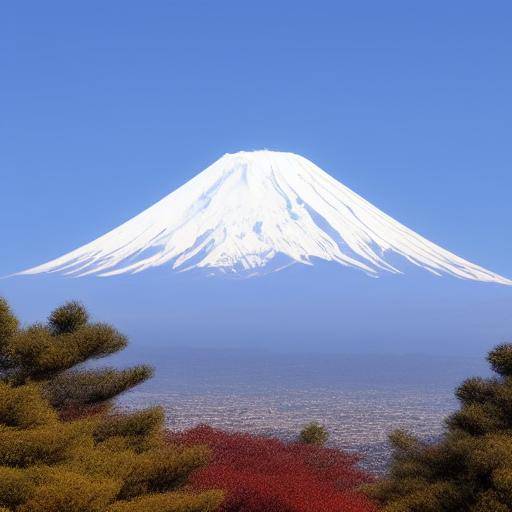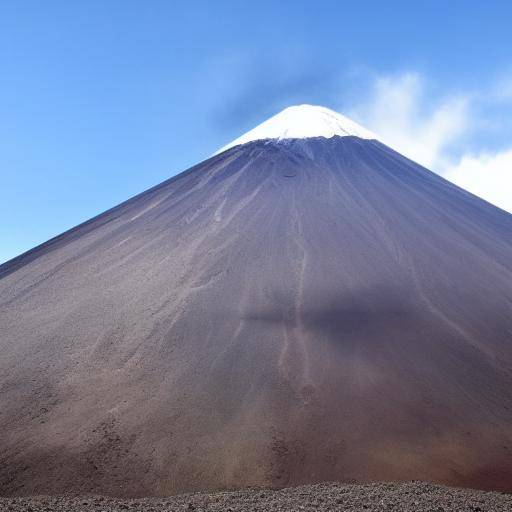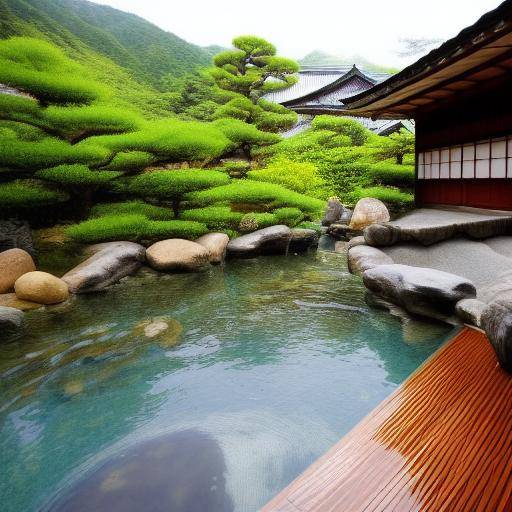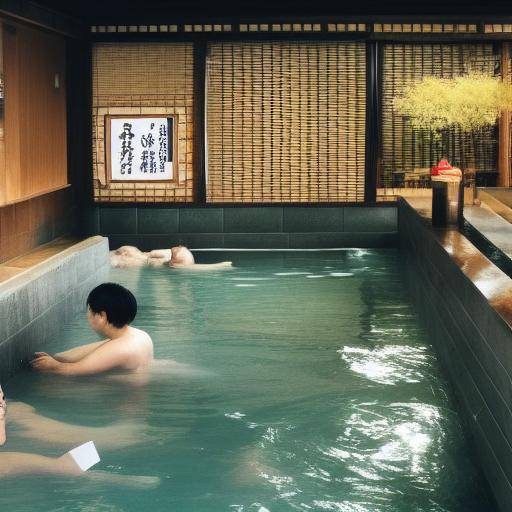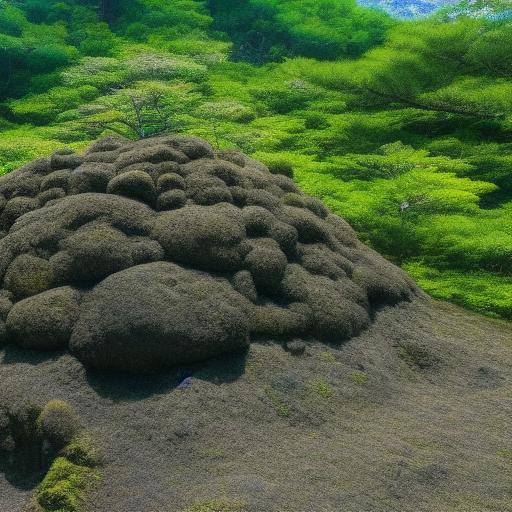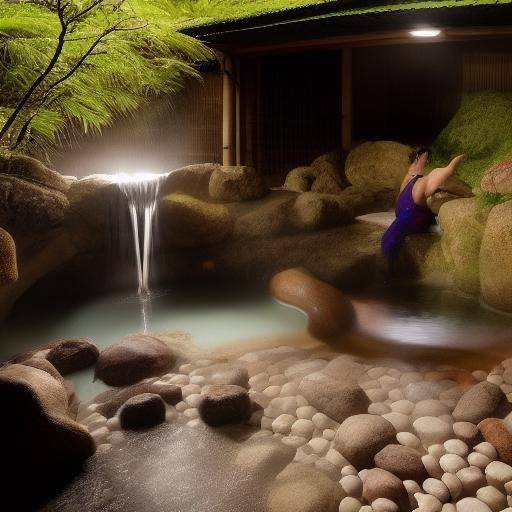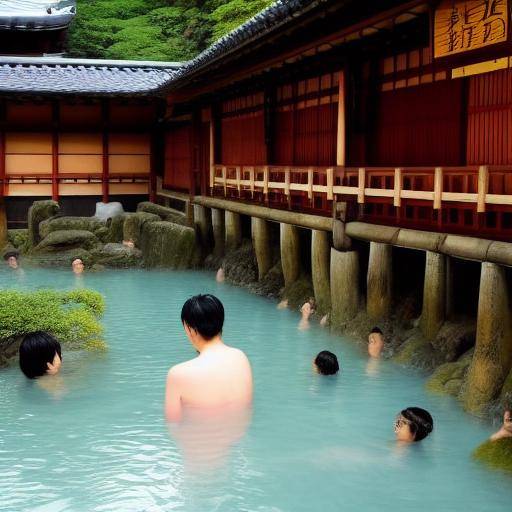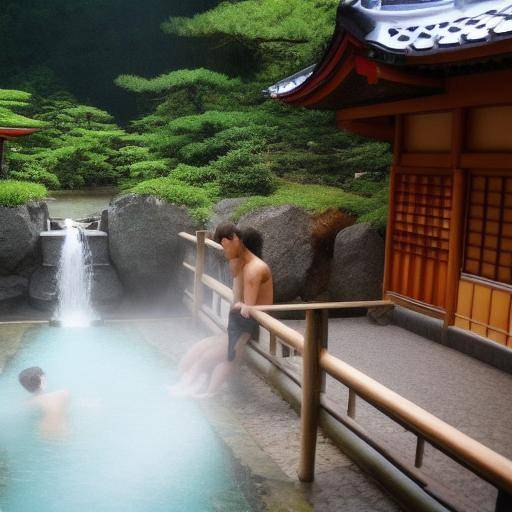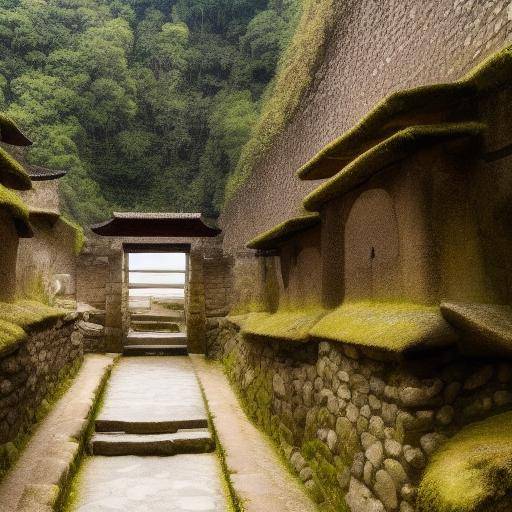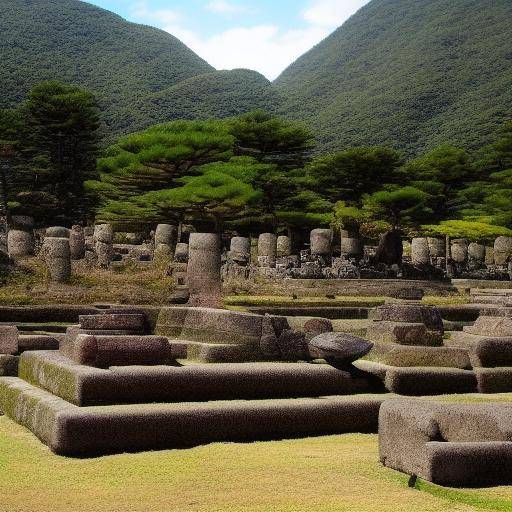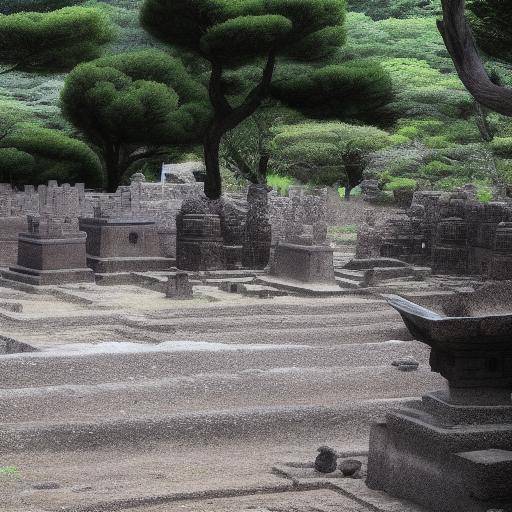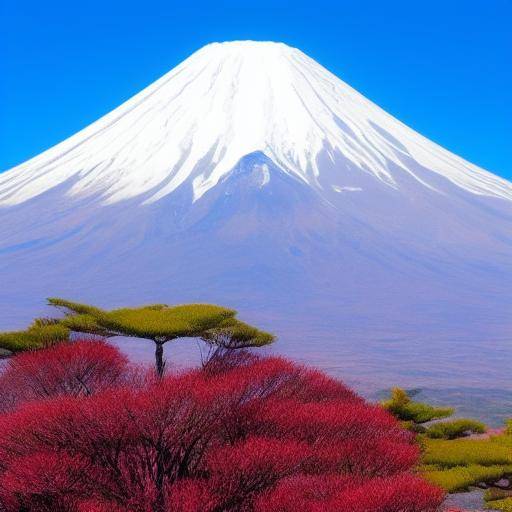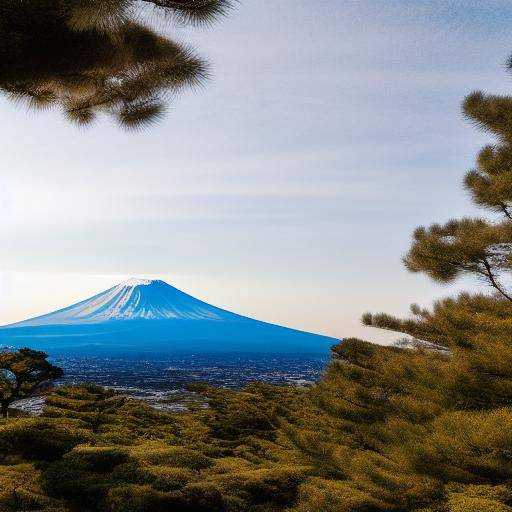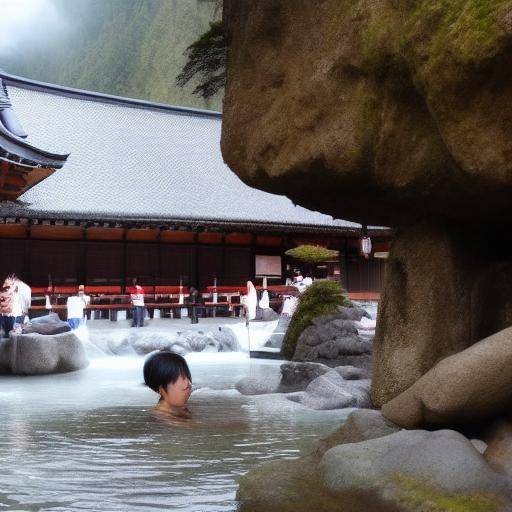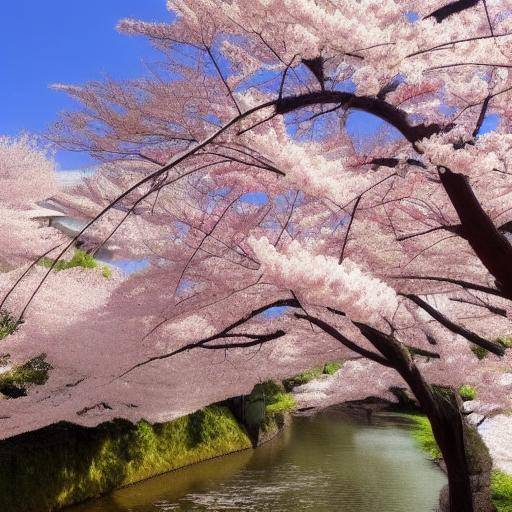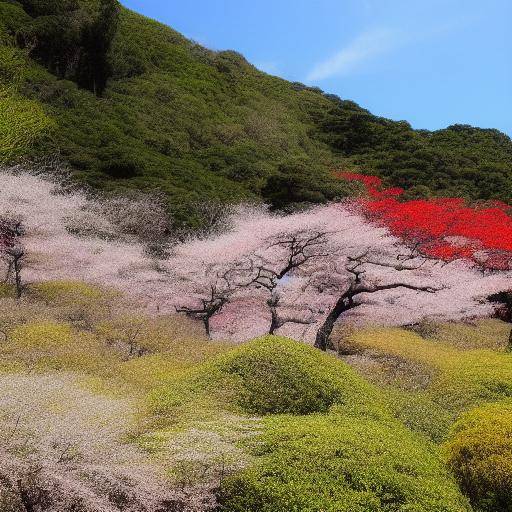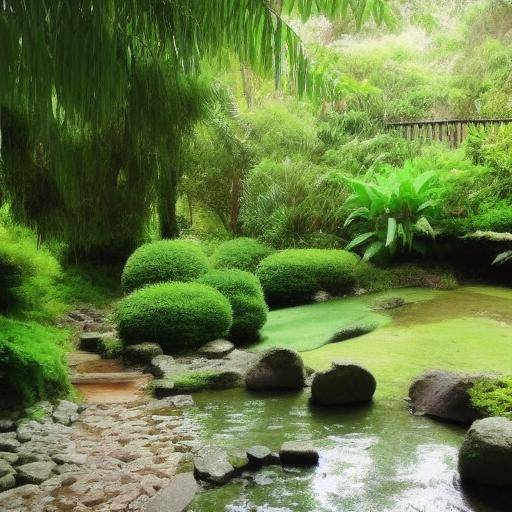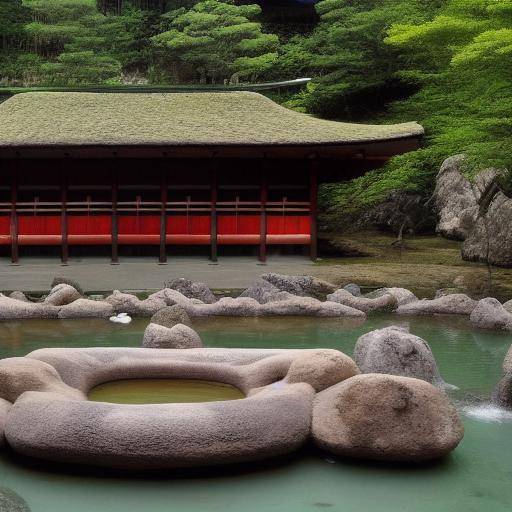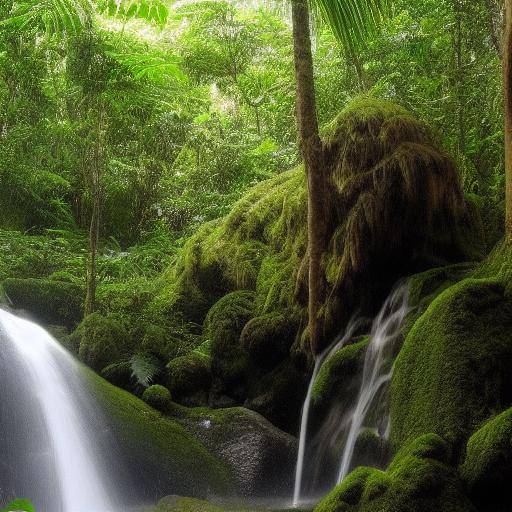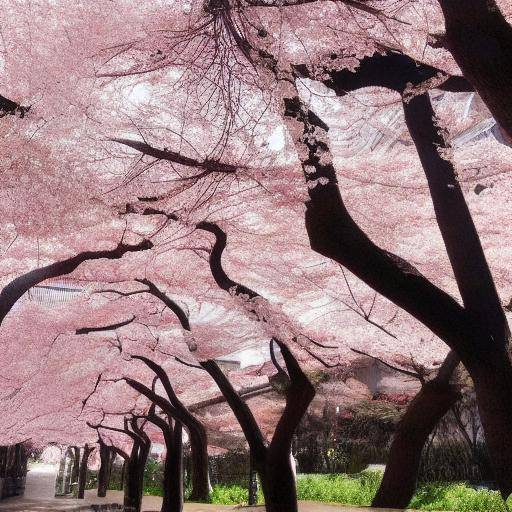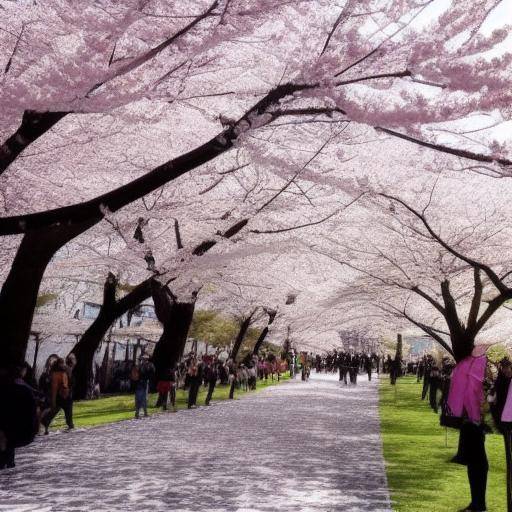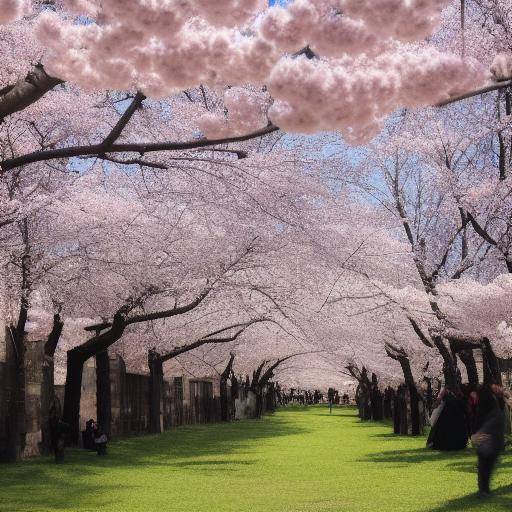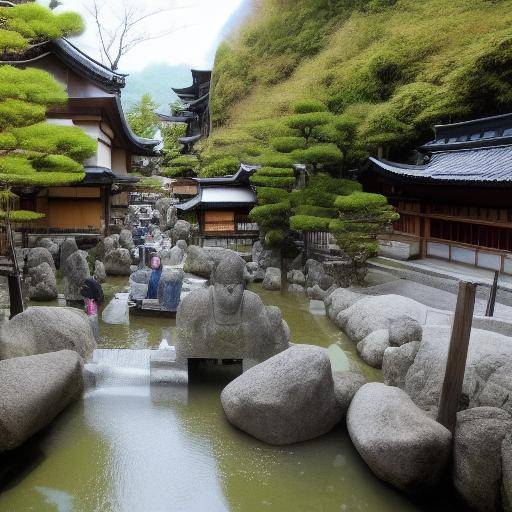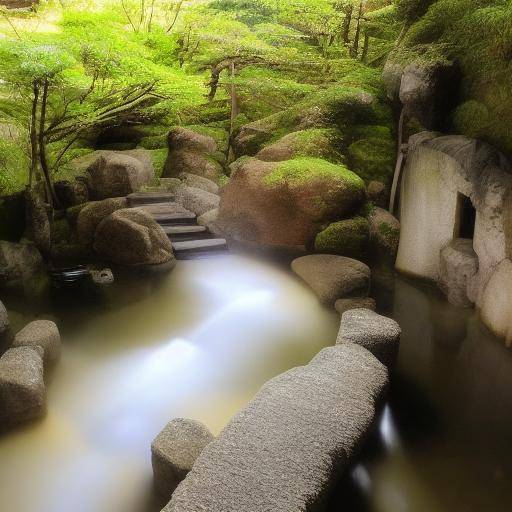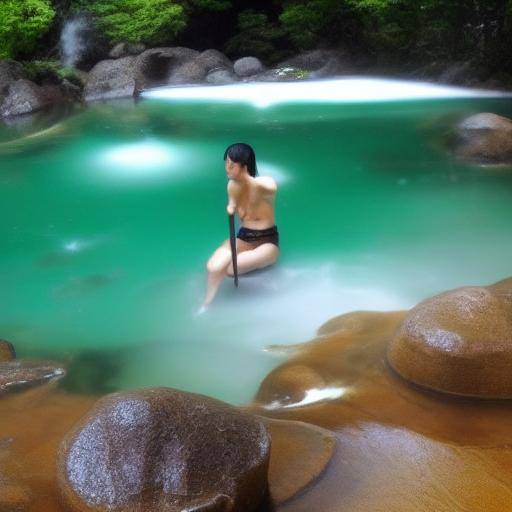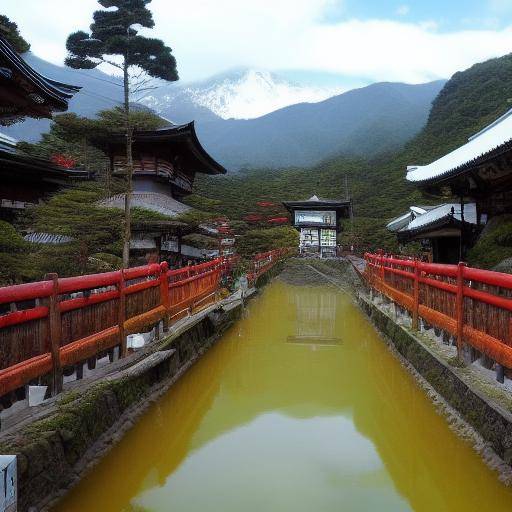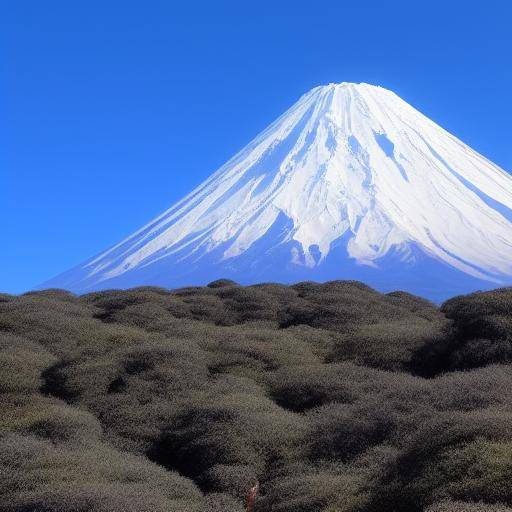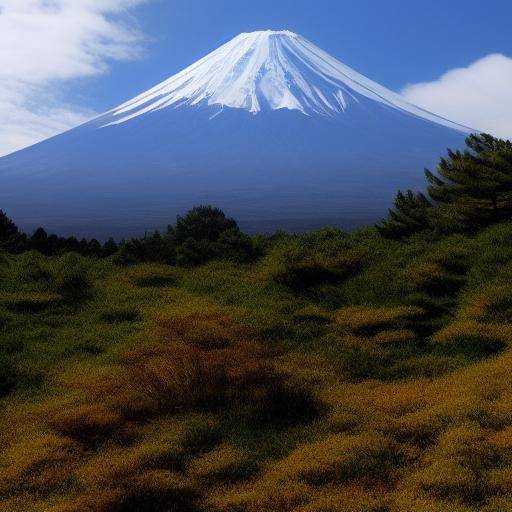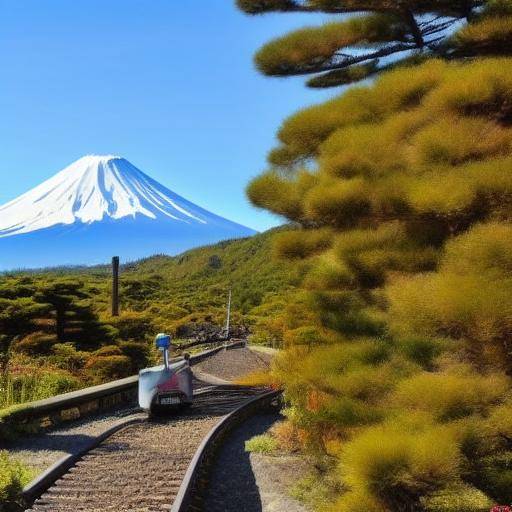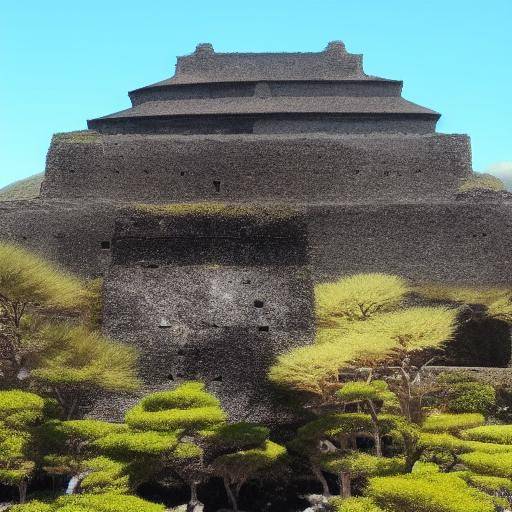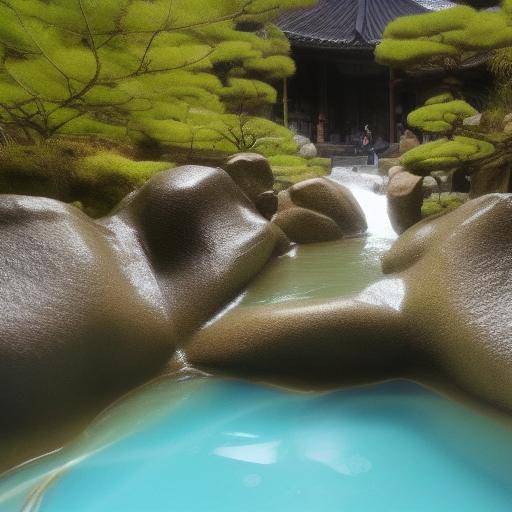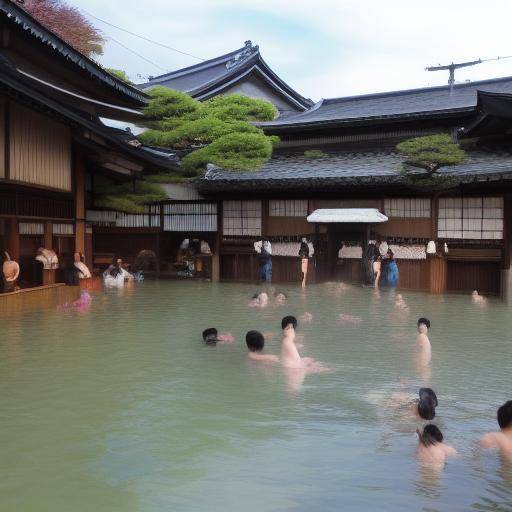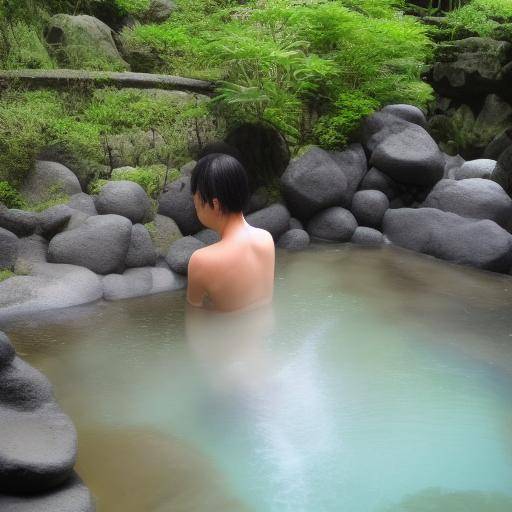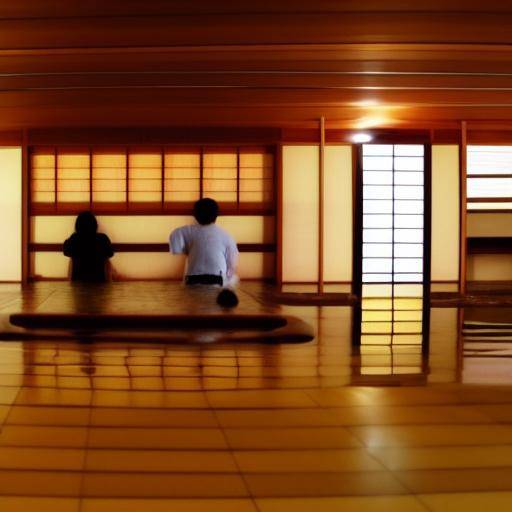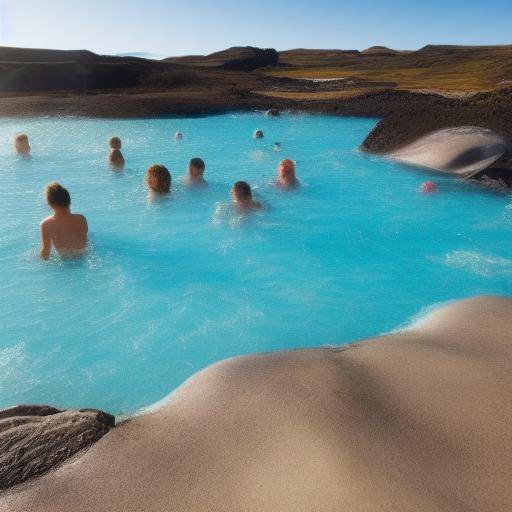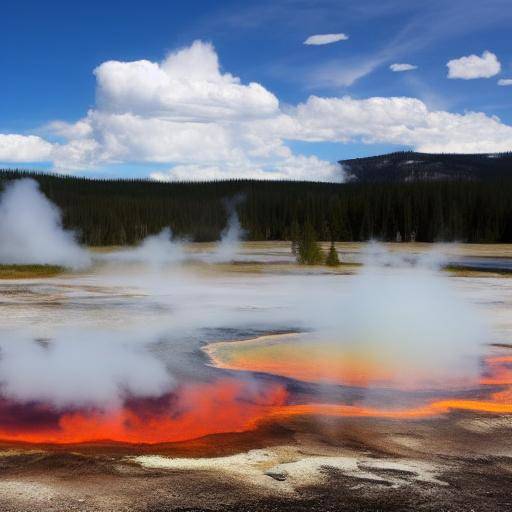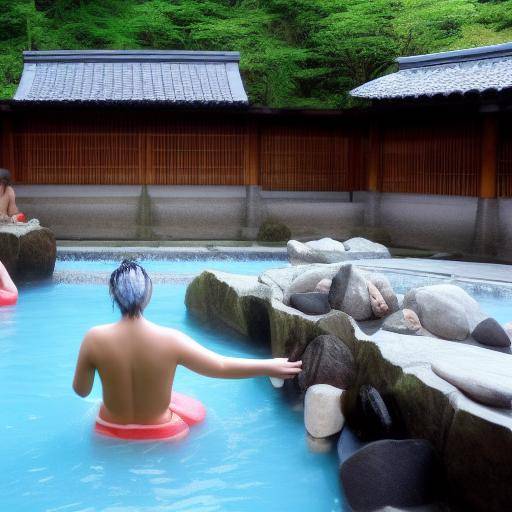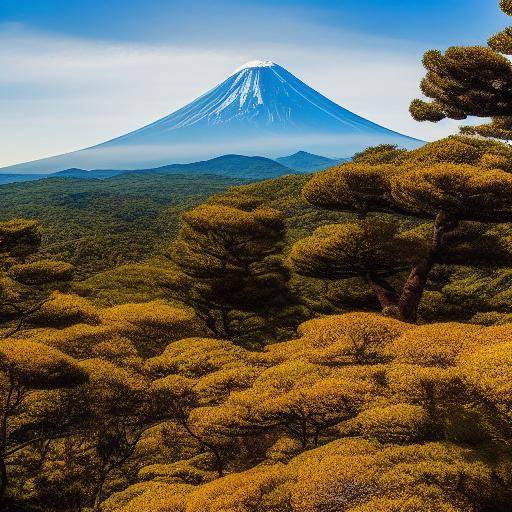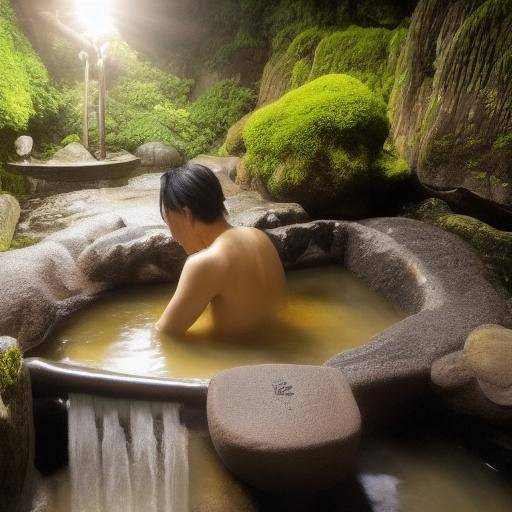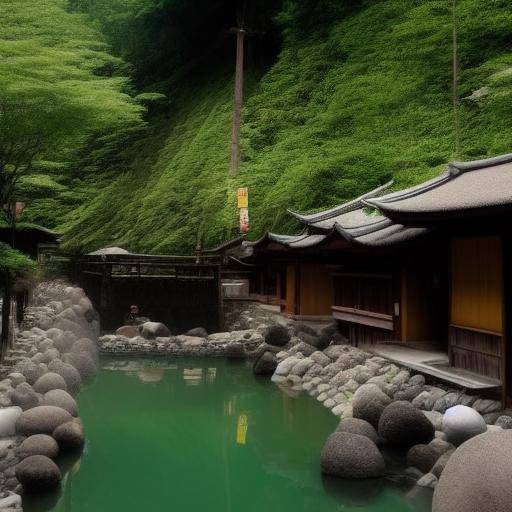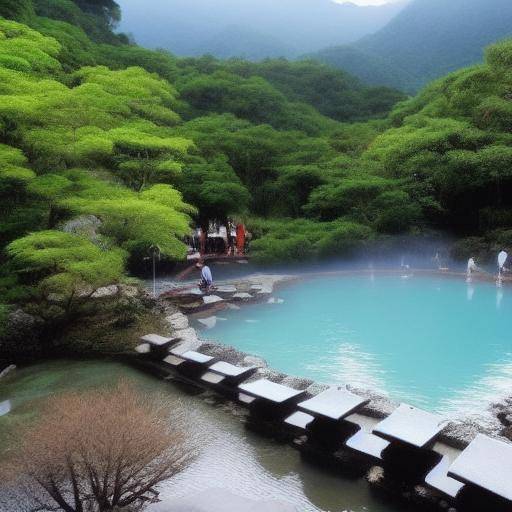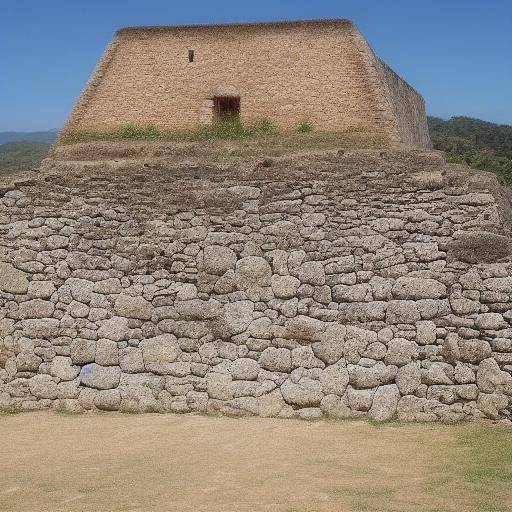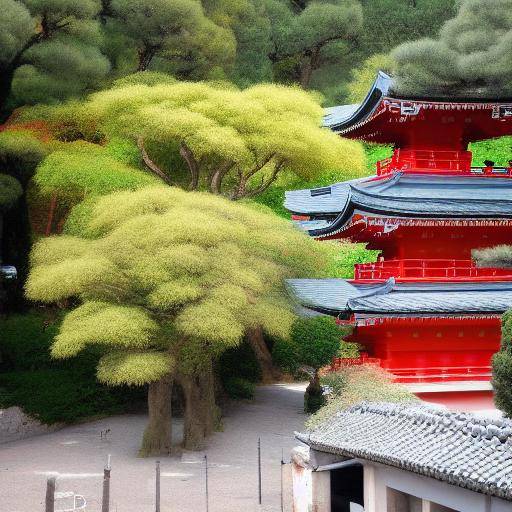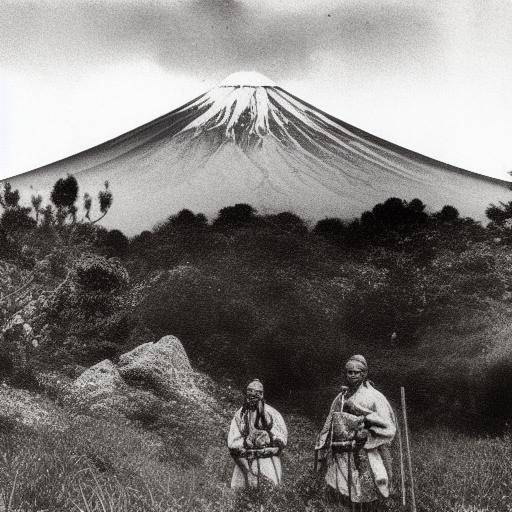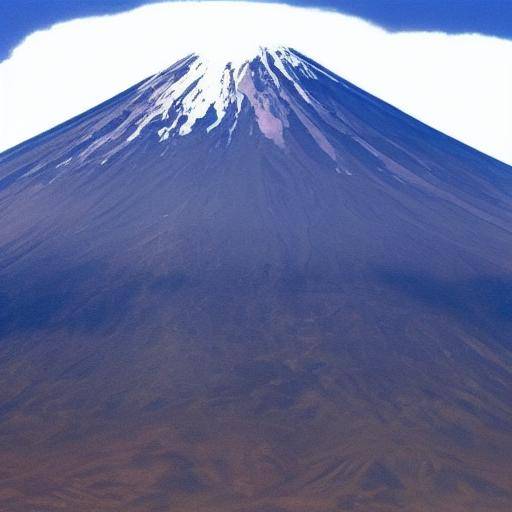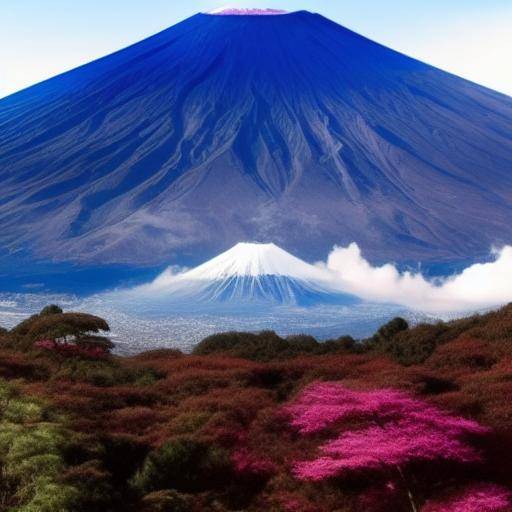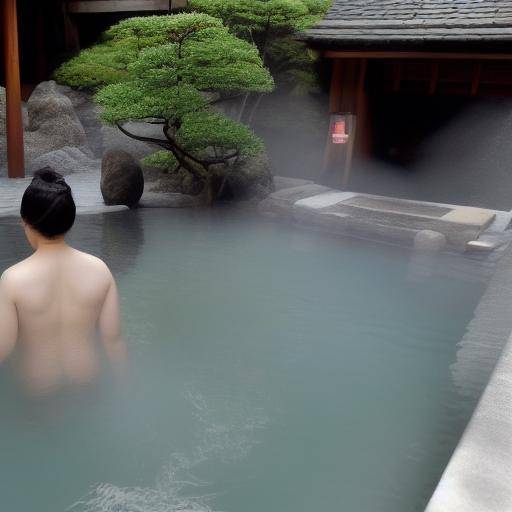
Introduction
Imagine yourself immersed in natural thermal waters, surrounded by lush nature, while peace and relaxation invade your whole being. This idyllic scenario is an experience that lives in the Japanese "onsen", a cultural heritage that merges centuries of tradition, health and well-being. In this article, you will embark on a unique journey through the onsen in Japan, exploring its history, benefits, practical applications and its influence on physical and emotional well-being. Prepare to immerse yourself in this ancestral tradition and discover the essence of deep relaxation!
History and Background
The onsen have deep roots in Japan's history, dating from centuries ago, when the thermal waters were discovered and venerated by their healing and relaxing properties. The onsen tradition dates back to the eighth century, with records that reveal that the Japanese nobles and royalties enjoyed these thermal baths to maintain their health and well-being. Over the years, the onsen became considered places of rest, where the purification of the body and the spirit was practiced. This historic legacy has remained strong until today, being an integral part of Japanese culture.
The onsen not only represent a place of relaxation, but also a symbol of social coexistence, in which the interaction between different people is encouraged. The label, rituals and customs associated with thermal baths are an essential part of the Japanese cultural legacy, making the onsen experience unique and enriching.
Source: JNTO - Japan National Tourism Organization - Japan Travel, 2021
Detailed Analysis
Onsen Benefits and Challenges
The benefits of plunging into thermal waters go beyond mere relaxation. These mineral-rich waters offer therapeutic properties for skin, muscles and blood circulation. In addition, it has been proven that onsen can relieve stress, improve sleep quality and strengthen the immune system. Despite these benefits, there are challenges, such as water temperature regulation, hygiene management and the sustainability of thermal sources.
Current and Perspective Trends
Today, the onsen have become popular tourist destinations not only among the Japanese, but also among international visitors. Well-being tourism has promoted the popularity of the onsen, creating new economic opportunities in the thermal zones. There is also an evolution in the integration of innovative technologies to improve onsen experience while preserving their authenticity and tradition.
Source: The Japan Times - The Japan Times, 2021
Comprehensive review
Applications, Cases and Good Practices
Onsen are not only tourist destinations; they also have therapeutic applications in the field of medicine and well-being. Various therapies based on thermal waters have been developed to treat chronic conditions such as arthritis, fibromyalgia and stress. In addition, the combination of relaxation techniques and thermal baths has become a key practice within the well-being industry, with spas and rehabilitation centers that integrate the onsen into their programs.
Sector Perspectives and Views of Experts
Experts from the welfare industry agree that onsen represent an essential part of the Japanese lifestyle, with a holistic approach to health and balance. The integration of traditional practices with modern medical advances has positioned Japan as a leader in the field of thermal water therapy, attracting the attention of experts and health professionals around the world.
Source: The Japan News - The Japan News, 2021
Comparative analysis
Comparison between Onsen, Japan and Hot Springs
The Japanese onsen are distinguished from other forms of thermal baths due to its long tradition and its close relationship with Japanese culture. Compared to other thermal destinations around the world, the onsens stand out for their special emphasis on the concept of integral well-being, which encompasses not only physical relaxation, but also spiritual harmony. These unique aspects make them differentiated and highly valued tourist destinations by international visitors.
Examples and Scenarios Detailed
A revealing example of the influence of the onsen in Japanese culture is their representation in literary works, paintings and performing arts, where they stand out as a symbol of purification and renewal. The onsen have inspired countless works of art and played an important role in building Japanese cultural identity throughout history.
Source: CNN Travel - CNN Travel, 2021
Practical Tips and Accessible Recommendations
Tips to Enjoy the Maximum Onsen Experience
- Investigate before visiting: Be sure to investigate the rules and customs of the onsen you plan to attend, as everyone can have their own rules.
- Onsen tag: Respect the label rules, such as washing before entering the water or not dipping the towel in the thermal waters.
- Hydrating: Stay hydrated before and after dipping into the onsen to avoid dehydration.
Step-by-Step Guides and How to Do It
How to Enjoy a Japanese Traditional Onsen
- Step 1: Pre-cleaning: Before entering the water, wash completely in the available showers.
- Step 2: Enter the onsen: Undress completely and immerse yourself slowly in the thermal waters.
- Step 3: Enjoy: Relax, enjoy serenity and let the thermal waters renew you.
Source: Personal experience and Japan Travel Guide - Japan Guide, 2021
Industry Perspectives and Expert Reviews
Reflections of Experts and Future Trends
The growing awareness of the importance of physical and mental well-being is driving the development of onsen at innovative levels. Well-being experts predict that onsen will continue to evolve, adopting new technologies to improve user experience and offering customized programs that integrate natural therapies with holistic health approaches. This evolution promises an even more enriching and rejuvenating experience for onsen visitors.
Onsen are also being recognized globally as well-being destinations, which has generated growing interest from international visitors. This trend promises to project Japan as one of the world's leading well-being and thermal waters destinations, providing economic and cultural benefits to both the nation and visitors.
Source: Interview with Dr. Hiroshi Nakanishi, Welfare Expert, 2021
Conclusions and FAQs
Conclusions
The onsen in Japan represent much more than simple thermal baths; they are a symphony of tradition, health, well-being and culture. Their historical legacy, their therapeutic wealth and their impact on Japanese society make them enclaves of deep relaxation and unique tourist destinations. As the world moves towards a more holistic approach to well-being, the onsen promise to play a vital role in promoting harmony between body, mind and spirit. Dive into the onsen experience and discover the transforming power of these Japanese thermal jewels.
Frequently asked questions
1. What is the difference between an onsen and a sitting in Japan?
In Japan, an onsen refers to a thermal bath fed by natural thermal waters, while a sitting is a public bathroom that usually uses running water.
2. Are all the waves in Japan mixed?
No, most of the onsen have separate areas for men and women. However, some establishments offer appointed hours or days to allow mixed experience.
3. What is the right label when visiting an onsen in Japan?
It is important to follow the label rules, such as showering before entering the water, keeping the silence and not dipping the towel in the thermal waters.
4. Is it necessary to book in advance to visit an onsen in Japan?
In some very popular onsen, especially in high seasons, it is recommended to make reservations in advance. However, most establishments permit visits without reservation.
5. What are the therapeutic benefits of onsen?
Onsen offer benefits for the skin, muscles, blood circulation and immune system, as well as helping to reduce stress and improve sleep quality.
6. Are Japanese onsen accessible to people with disabilities?
Many onsen offer accessible facilities, such as ramps and lifts, to enable people with disabilities to participate.
In short, the onsen in Japan are much more than simple thermal baths; they represent a link with history, culture and physical and emotional well-being. Dive into the hot springs of Japan and discover a centuries-old tradition that continues to captivate travellers and well-being lovers around the world.

